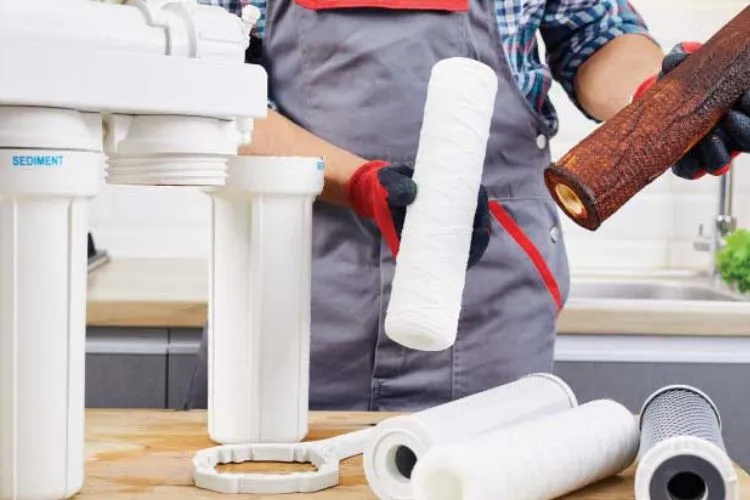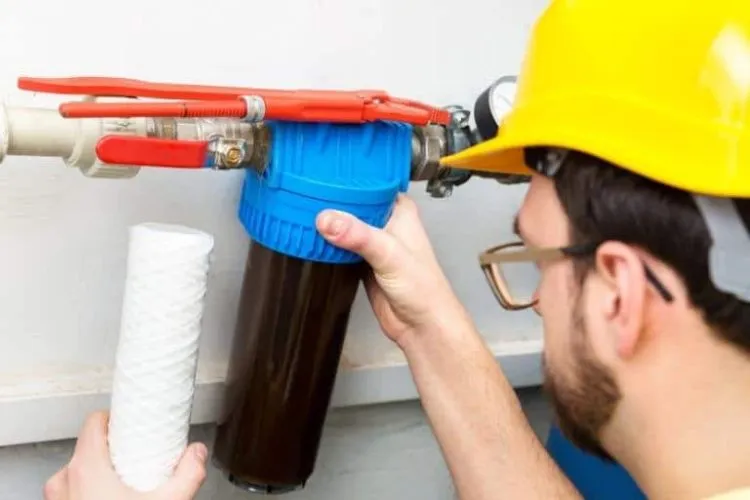In the quest for clean and safe drinking water, many of us turn to water filters as our go-to solution.
These devices play a crucial role in purging our water of unwanted contaminants and impurities.
But one question that often arises is whether unused water filters lose their efficacy over time – in other words, do unused water filters expire?

💦 The Basics of Water Filters
Water filters come in various types, each designed to remove different contaminants from water.
The most common among these is the activated carbon filter, which removes chlorine and organic compounds, making water taste and smell better.
Others, like reverse osmosis filters, are more complex systems that remove a broader range of pollutants, including some bacteria and viruses.
Understanding how water filters work is key to appreciating the importance of replacing them on time.
Essentially, they trap and hold the contaminants, which means their ability to clean water diminishes over time as they get saturated.
💦 Do Unused Water Filters Expire?
The question of whether unused water filters expire is not as straightforward as it seems. The answer varies depending on the type of filter and how it’s stored. Let’s delve deeper into these factors.
Shelf Life of Various Water Filter Types
Most water filters don’t have an indefinite shelf life, even if they are not in use. For example, activated carbon, a common element in many filters, can degrade if exposed to air for too long.
Similarly, the shelf life of pitcher filters, under-sink filters, and whole-house filtration systems depends on the materials they’re made of and how they’re stored before use.
Factors Influencing Shelf Life
Environmental factors play a significant role in the shelf life of unused water filters. Humidity, temperature, and sunlight can all affect a filter’s components, potentially shortening its effective lifespan.
Additionally, how a filter is packaged can have a significant impact on its preservation. Factory-sealed packaging helps protect the filter from air and moisture, which can degrade its materials over time.
Manufacturer Guidelines
Manufacturers often provide recommendations regarding the storage and shelf life of their water filters. Adhering to these guidelines is crucial, not only to ensure the filter’s effectiveness but also to maintain the product’s warranty.
💦 Understanding Expiration Indicators
There are a few signs that may indicate a water filter is no longer effective. If a filter shows signs of physical degradation or if its packaging is compromised, its efficacy may be diminished.
Unfortunately, many signs of a filter’s expiration are not visually detectable, making it crucial to adhere to manufacturers’ recommendations.

💦 Storage Tips for Preserving Unused Water Filters
To extend the life of unused water filters, it’s essential to store them properly. Keeping them in a cool, dry place away from direct sunlight is key. Ensuring the packaging remains intact until the filter is needed can also help prevent premature degradation.
💦 When to Replace Your Water Filter
Knowing when to replace a water filter can be tricky, especially if it hasn’t been used. A good rule of thumb is to follow the manufacturer’s guidelines, which often recommend replacing filters after a specific period, regardless of use.
This ensures that the water quality remains high and that the filter operates efficiently.
💦 Expert Opinions and Case Studies
Consulting with water quality experts yields a unanimous verdict: timely filter replacement is essential for optimal health and safety.
Case studies have shown that using expired filters can lead to a false sense of security, where users consume water teeming with contaminants that should have been eliminated.
For instance, a study by a major university revealed an increased concentration of lead and chlorine by-products in water that passed through outdated filters, highlighting the tangible risks of postponed replacements.
These real-life scenarios underscore the critical decline in filtration performance over time, validating experts’ recommendations for adhering to manufacturer guidelines on filter lifespan.

💦 Health Implications of Using Expired Filters
Using water filters beyond their recommended lifespan can pose significant health risks. As filters degrade, their efficacy in capturing contaminants diminishes, potentially leading to the consumption of contaminated water.
Exposure to harmful chemicals like lead, pesticides, and chlorine by-products can increase when filters fail to remove them effectively.
Additionally, bacterial growth within expired filters is a major concern; bacteria can colonize the filter medium and leach into the water supply.
This can lead to gastrointestinal illnesses and other health problems, especially in immune-compromised individuals.
Hence, adhering to manufacturer-recommended replacement schedules is crucial in preventing these health hazards and ensuring safe drinking water.
💦 Frequently Asked Questions (FAQs)
Do water filters have an expiry date?
Water filters often come with a recommended shelf life from the manufacturer. While this is not an expiry date in the traditional sense, it serves as a guideline for how long the filter is expected to retain its efficacy before use.
Can unused water filters become ineffective over time?
Yes, over time, even unused water filters can become ineffective. Environmental factors and degradation of materials can lead to a decrease in a filter’s ability to purify water effectively.
How can I tell if my water filter is still good?
The best way to determine if a water filter is still effective is by consulting the manufacturer’s guidelines regarding shelf life and replacement. Some filters also have usage indicators, but these are generally not helpful for unused filters.
Is it safe to use an old, but unused, water filter?
Using an old but unused water filter may not always be safe. If it has been stored beyond the recommended shelf life or in poor conditions, its ability to filter water effectively may be compromised.
Conclusion:
Unused water filters do have a shelf life, and their efficacy can diminish over time even if they remain unopened.
It’s essential to be mindful of how and where you store them and to adhere to manufacturer guidelines regarding replacement.
Regular maintenance and replacement of water filters are crucial steps in ensuring that the water we drink is clean and safe.
Taking care of our water filters, much like any other aspect of our homes, requires a bit of knowledge and attention.
By understanding the factors that influence a filter’s shelf life and knowing when to replace them, we can ensure that we always have access to clean, safe drinking water.

Devon Shorts, a seasoned expert with over a decade of experience in water safety, shares valuable insights on this blog “Aqua Safety Plus”. Trust his expertise to keep your water clean and your family safe.
